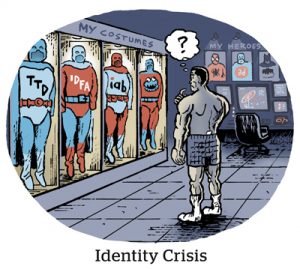Here’s today’s AdExchanger.com news round-up… Want it by email? Sign up here.
Rise And Dream
Brian Krebs, the publisher of Krebs on Security, has a wild tale to tell. It involves high-profile hackers and internet criminals – with some reality TV and social media crypto influencers used as bait – plus a bunch of crooked LA cops on a shady CEO’s payroll.
An FBI complaint filed last week has all the details.
But this one’s personal for Krebs, who in 2013 was swatted by the criminals in this case for reporting on their involvement in hacking incidents.
This does relate to AdExchanger, by the way. One of the group’s crimes involved hacking or phishing Facebook advertising accounts and using two digital agencies – Rise Agency and Dream Agency – as fronts to operate the accounts. The agencies also fashioned a business out of bribing Facebook employees to reinstate accounts and campaigns that had been suspended for policy violations.
In 2022, AdExchanger broke the news that at least three Facebook employees had been fired for accepting bribes in exchange for reinstating accounts. The former employees cut deals with unnamed ad agencies to essentially have their customer service tickets seen to.
Advertisers typically paid a few thousand dollars per ticket, which is a digestible amount for a brand or agency with a six- or seven-digit campaign waiting in platform purgatory.
Haul Of Precedents
The US vs. Google ad tech antitrust testimony has concluded. So Digiday asked legal scholars to weigh in on how US antitrust precedent might inform the result.
Google’s primary defense – that display advertising is not a unique market but part of a wider ad market – draws on the Supreme Court’s 2018 Ohio v. American Express ruling. In that case, the Court ruled that credit card holders and merchants don’t represent two separate markets. With that in mind, Judge Leonie Brinkema could support Google’s view that publishers, advertisers and ad tech aren’t inherently separate markets.
However, Roger Alford, who worked in the DOJ’s antitrust division between 2017 and 2019, says the credit card and digital advertising markets are extremely dissimilar, so Ohio v. Amex wouldn’t apply.
Google also invoked the 2004 Verizon v. Trinko decision to support the argument that it didn’t accommodate smaller competitors for legitimate business reasons. Google’s rationale is that it’s protecting user privacy and supporting ad quality. But several DOJ witnesses argued that Google’s alternative to header bidding didn’t deliver privacy benefits or superior ads.
If Judge Brinkema rules against Google, the Supreme Court could be sympathetic to an appeal, former FTC chair William Kovacic tells Digiday, since the SCOTUS majority has increasingly favored business interests.
The Unopened Web
Does anyone remember StumbleUpon? Or Homestar Runner? Or Digg?
They come to mind because the open web, once a beautiful wilderness full of treasures, is turning into a desert.
The latest example comes from Vox Media, which is experimenting with a paywall for The Verge, its tech and culture news site. CNN, meanwhile, will begin locking articles and metering users this month. The Guardian is doing it, too.
And it isn’t just journalism. Reddit is considering paywalls on some subreddits, CEO Steve Huffman told investors in August.
The foundational trade-off of the ad-supported internet is that people accept ads in exchange for a free and vibrant web. It’s a clean, compelling offer. So whose fault is it that this clear-cut exchange has become so murky? And that the open web is no longer free or vibrant?
In part, we’re all to blame.
People have rapidly shifted from open web video to streaming and subscription services and moved their web browsing to in-app browsers – most of which are controlled by platforms like Google or Meta and are not part of the open web.
But Wait, There’s More!
PayPal probably opted you into data sharing without consent. [404 Media]
One of the world’s largest deposits of high-quality quartz, an essential component of microchips, was taken out of commission by Hurricane Helene. [Wired]
A New Jersey couple lost their appeal to sue Uber over a car crash because their daughter hit “agree” on the updated terms and conditions in Uber Eats. [The Guardian]
The QR code continues its stranglehold on TV interactivity, with CBS using QR codes to provide live fact-checks during the vice presidential debate. [NYT]
A look inside the newly resurrected Onion, which CEO Ben Collins wants “to be the biggest bizarro funhouse mirror on American life.” [Long Lead]
You’re Hired
Josef Najm is starting a new position as director of strategic initiatives and partnerships at Reuters. [post]
Ben Hewitt joins Dentsu as chief commercial officer for media products. [release]

















